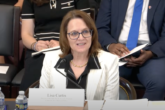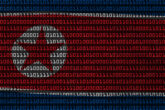March 05, 2019
The Inevitable Return of Muddling Along in North Korea
Since the collapse of nuclear talks in Hanoi last week, North Korea experts have argued about what went wrong. Donald Trump should have structured his offer differently, some said, aiming for modest steps toward denuclearization before seeking a grand bargain. Perhaps the administration should have put off the summit with Kim Jong Un, allowing working-level diplomats to make progress that the leaders could ratify later.
A simpler explanation for the summit’s failure is more convincing: The United States wants North Korea to give up its nuclear weapons and facilities, and Pyongyang doesn’t want to do so. The problem is fundamental. Now what?
We’ve been here before, more or less.
In 2008, President George W. Bush overruled his more hard-line advisers to seek a deal with Pyongyang, removing North Korea from the list of state sponsors of terrorism. In return, North Korea was supposed to provide a faithful account of its nuclear program and destroy the cooling tower at its Yongbyon production facility. According to The New York Times, delisting was just “the first step in what will be a long, drawn-out diplomatic process that is meant to lead eventually to establishing a nuclear-free Korean peninsula.”
Read the full article in The Atlantic.
More from CNAS
-
Assessing the Terror Threat Landscape in South and Central Asia and Examining Opportunities for Cooperation
Watch...
By Lisa Curtis
-
Indo-Pacific Security / Energy, Economics & Security
What Will North Korean Cybercrime Look Like in 2022?North Korean hackers will likely continue to employ more phishing campaigns in the future while tailoring their level of obfuscation based on the target’s sophistication....
By Jason Bartlett
-
Duyeon Kim testifies before European Parliament's Committee on Foreign Affairs
Chairman McAllister, Vice Chairs, DKOR Chairman Mandl, and distinguished Members of the Committee on Foreign Affairs and the European Parliament, thank you for the opportunity...
By Dr. Duyeon Kim
-
China’s New Land Borders Law Is a Nightmare for North Korean Refugees
A combination of high-level pressure from foreign governments and steady support for grassroots refugee resettlement organizations and programs is the most practical way to as...
By Jason Bartlett


